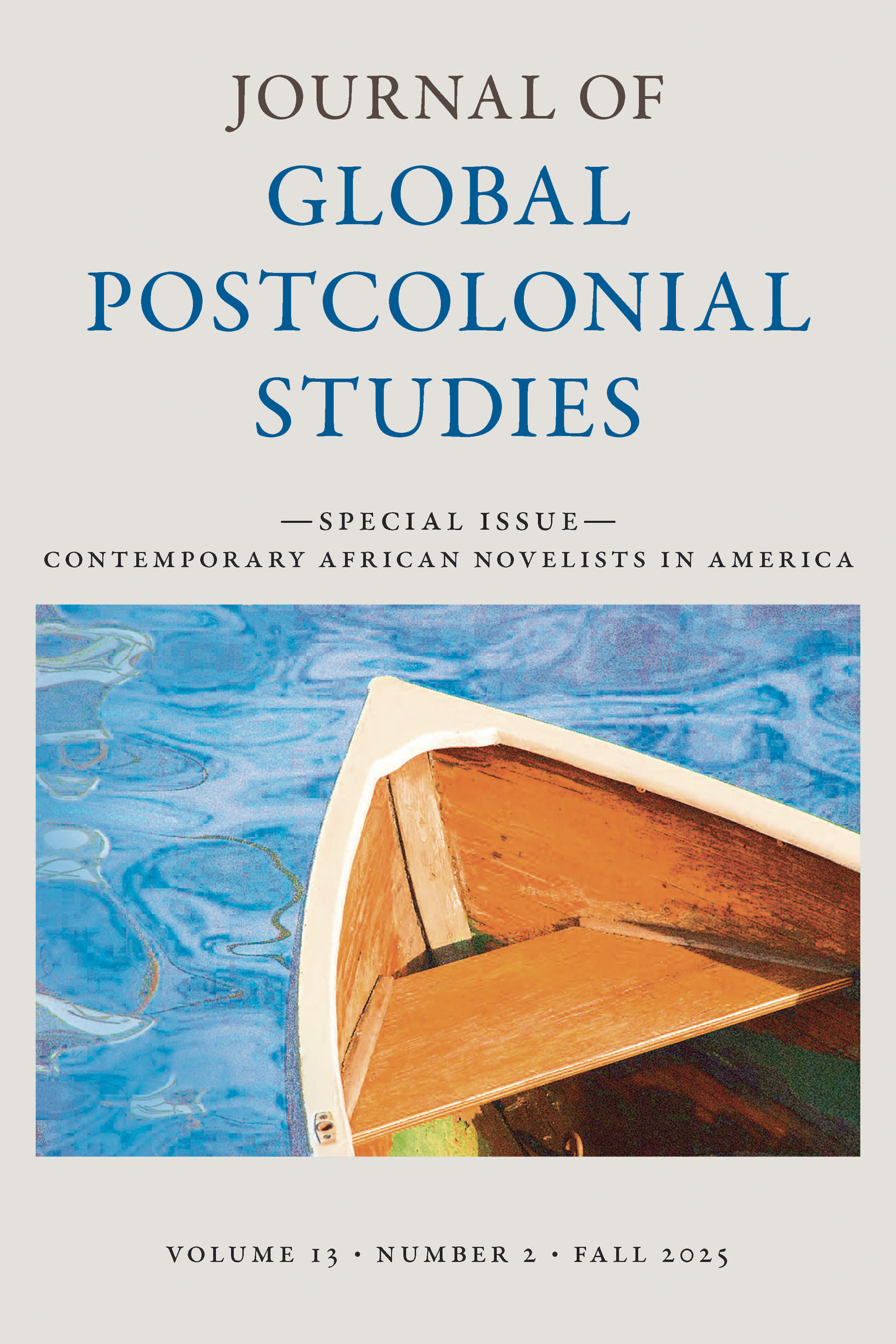Introduction
169–182
AbstractThis special issue of the renamed Journal of Global Postcolonial Studies builds on an earlier (2013) special issue’s investigations...
Articles
New African Diaspora Modes of Self Writing
Memory, Racialization, and Autofictionality in Tope Folarin’s A Particular Kind of Black Man
183–202
AbstractIn this paper, I argue that the use of autofiction in the works of contemporary African writers in America can be understood broadly as a new...
Racial Conscription and Its Limits
Antinomies of Race in Teju Cole’s Novels
203–220
AbstractThis essay argues that relations between race, blackness, and class in
Teju Cole’s novels Open City (2011) and Tremor (2023) are mobilized...
Africanizing the Archival Vision of American Racial Violence in Teju Cole’s Tremor
221–240
AbstractBorn in Michigan in 1975 but raised in Lagos, Teju Cole belongs to a new generation of African novelists who came to the United States of...
An African Filmmaker's Journey Through Race, Art, and the Divide Between Two Continents
241–246
AbstractThis essay chronicles the personal and professional journey of an African filmmaker navigating the intersections of race, identity, and artistic...
Narrating Fractures
Teaching Notes on Yaa Gyasi’s Homegoing
247–262
AbstractYaa Gyasi’s acclaimed 2016 debut novel, Homegoing, has significantly contributed to African and African...
African Literary Culture and the Archival Stakes of Social Media
263–276
AbstractThis article argues for rethinking how we assign value to social media as a source of literary knowledge, with a focus on African literature....
Literature and the Advancement of Cultural and Intellectual Modernity in Africa and the United States
Daniel Simon in Conversation with Chibueze Darlington Anuonye
277–287
AbstractIn this conversation, Daniel Simon and Chibueze Darlington Anuonye discuss the role literature plays in the advancement of the intellectual and...
Book Review Essay
New Directions in African Film Studies
288–299
AbstractThis review essay examines three recent contributions to African film studies: Lokangaka Losambe’s Postcolonial Agency in African and...
General Article
Echoes of Empire
Unveiling Colonial Tendencies in Salman Rushdie’s Victory City
300–320
AbstractThis paper attempts to explore the representation of the Vijayanagara Empire and colonial tendencies in Salman Rushdie’s historical novel...
Notes on Contributors
321–323
AbstractContributor biographies for volume 13, number 2 (Fall 2025) of the Journal of Global Postcolonial Studies

